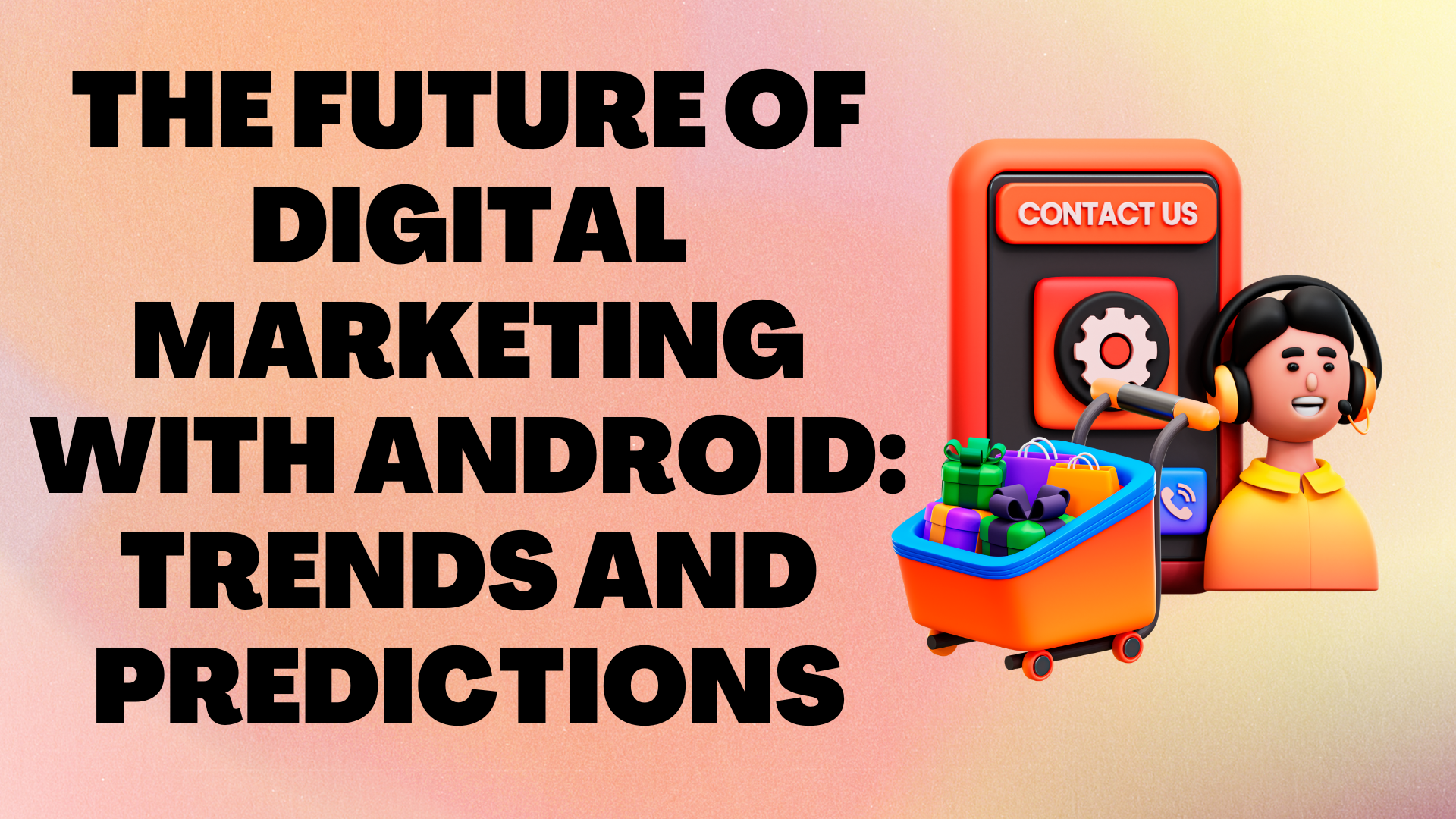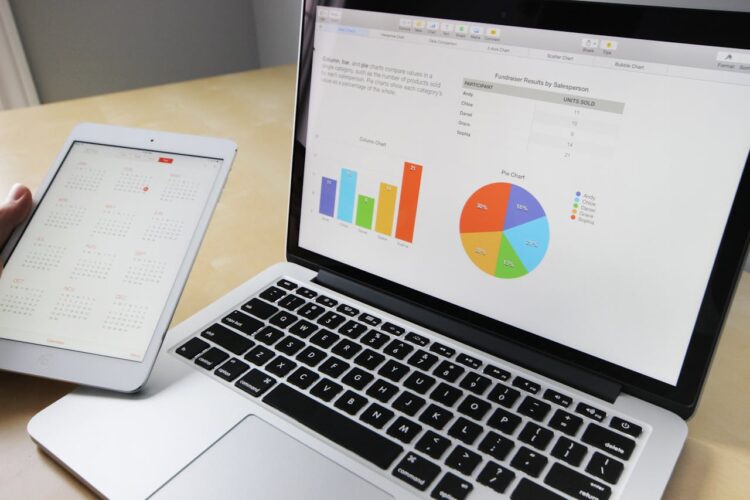
What does the future of digital marketing hold with the increase in smartphone technology and online activity? In a nutshell, the incorporation of cutting-edge technology like artificial intelligence (AI), augmented reality (AR), virtual reality (VR), 5G, and the internet of things (IoT) will define the future of digital marketing with Android.
Undoubtedly, digital technologies will significantly alter how organizations interact with customers who use mobile devices as they grow more sophisticated and pervasive. So, read on to learn trends and predictions worth noting about digital marketing.
Here Are 5 Notable Trends and Predictions
One way to stay ahead of the competition and gain from technological advancement is to watch out for trends, get useful tech tips, and observe the predictions from industry experts. That way, you do not get surprised or left behind as your competitors embrace innovations.
Here are some trends and predictions for Android-based digital marketing in the future:
1. An Increase In Influencer Marketing Initiatives
Influencer marketing is a quickly evolving trend that will continue in the future of digital marketing with Android. Businesses will increasingly collaborate with influencers to market their goods and services to their following to reach new audiences and increase brand awareness.
Influencer marketing is a kind of advertising where companies work with people who have a sizable internet following, or influencers, to market their goods or services. Through the influencer’s support of the brand and wide audience reach, influencer marketing aims to increase brand awareness.
This type of marketing can take various forms including the following common forms:
- Brand mentions
- Product reviews
- Sponsored posts
- Others
Influencer marketing initiatives can be successful because they use the authority and trust that influencers have established with their followers. That enables your firm to engage with customers more genuinely and engagingly and reach new audiences.
Indeed, reaching younger generations, who are more prone to accept influencer recommendations than conventional advertising, is made possible by this sort of marketing.
2. A Rise in the Use of Voice Search and Chatbots
In the future of digital marketing with Android, voice search and chatbots will have a significant impact. Voice search will become a typical way for people to obtain information and make purchases as voice-enabled gadgets become more widespread.
Chatbots and voice search are related technologies altering how people use technology and the internet. Using voice commands to search for information or carry out tasks on gadgets like smartphones, smart speakers, and home assistants is known as voice search.
On the other hand, chatbots are computer programs created to mimic communication with human users. You can incorporate them into the following:
- Websites
- Chat applications
- Other online media
Indeed, in the future, chatbots will advance in sophistication. That will enable companies to offer rapid, individualized service to their clients via messaging applications, websites, and voice assistants. Your business will benefit from this as you work to enhance client loyalty and the customer experience.
3. Personalized Experiences Aided by Artificial Intelligence (AI) and Machine learning
Artificial intelligence (AI) and machine learning are altering the digital marketing landscape. These technologies enable companies to customize their marketing messages and offerings to unique consumer preferences and behaviors. Personalized interactions will enhance the user experience and forge deeper bonds with customers.
There are several ways that AI and machine learning might aid in personalizing experiences. Here are some examples worth noting:
- Personalized digital marketing
- Predictive modeling and analytics
- Customized product suggestions
- User interfaces adapted to customer behavior
- Content tailored to a user’s interests
Note further that, AI and machine learning can assist in other areas as well. For instance, you can use machine learning algorithms to evaluate consumer data, spot patterns, and forecast future behavior. This enables you to optimize your marketing campaigns in real-time. As a result, your business will provide highly relevant, targeted, and engaging information.
Although AI and machine learning can assist in delivering tailored experiences, it’s crucial to remember something. You cannot utilize these technologies in isolation. They must work with other marketing and consumer engagement techniques.
4. Widespread Adoption and Use of IoT and 5G
The wide use of 5G technology will significantly speed up and improve the dependability of mobile networks. That will allow companies to provide customers with high-quality, real-time experiences.
On the other hand, the internet of things (IoT) will enable businesses to gather enormous volumes of data. Sources of such data will be linked devices that deliver fresh perspectives on consumer behavior and preferences. Further, connected homes, smart cities, and wearable technology will give businesses new chances to interact creatively with consumers.
In a variety of industries, including healthcare, retail, and transportation, among others, IoT and 5G will jointly spur considerable innovation and transformation. These technologies can enhance your quality of life and open new opportunities for your business and consumers by enabling new and more effective working, living, and communicating.
5. Prevalence of Augmented Reality and Virtual Reality
As customers become more accustomed to digital technologies, Augmented Reality (AR) and Virtual Reality (VR) will be used more frequently in digital marketing.
The AR technique projects digital data onto the physical world. Smartphone cameras, AR goggles, or other AR gadgets can do this. The technology known as virtual reality, on the other hand, generates an entirely fabricated environment that can be experienced and interacted with.
While VR will offer a completely new degree of immersion that can mimic real-world experiences, AR will allow businesses to develop immersive and interactive experiences that let customers explore products and services more engagingly. A travel agency might offer a virtual tour of a location to assist customers in making decisions, while a vendor of furniture might let buyers view furnishings in-store before making a purchase.
Together, AR and VR will change how people interact with the digital environment. They also have the potential to completely disrupt a variety of sectors, including entertainment, education, and healthcare.
Conclusion
In conclusion, the future of digital marketing with Android will most likely narrow down the focus on AI and machine learning, 5G networks, voice-enabled devices, and privacy and security. Marketers who follow these trends and use new technologies to connect with their customers will be the most successful in the coming years.
You have learned the trends and predictions regarding digital marketing with Android. As you have noted, the trends emphasize the improvement in various activities, including marketing, advertising, customer experience, and others. So, prepare for the future digital marketing trends to stay on top.





